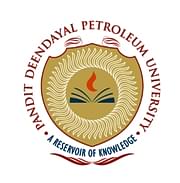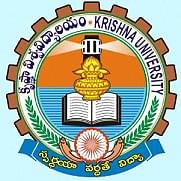Introduction about Ph.D. Course
A Ph.D. (Doctor of Philosophy) course is the highest
level of academic degree program at the best Ph.D. The University of Bangalore
that one can achieve in most fields of study. It typically involves
advanced research and study in a specific subject area, leading to the
production of original scholarly work in the form of a dissertation or thesis.
Ph.D. programs are offered by universities and research
institutions worldwide and are designed to prepare students for careers in
academia, research, industry, or government. The duration of a Ph.D. program
varies depending on the field of study, institution, and individual progress,
but it commonly takes between three to seven years to complete.
The structure of a Ph.D. program often includes
coursework, comprehensive exams, and the completion of a significant research
project under the guidance of a faculty advisor or mentor. The coursework
typically covers advanced topics related to the student's field of study,
providing them with the necessary theoretical and methodological foundations to
conduct independent research.
One of the defining features of a Ph.D. program is the
dissertation or thesis, which is an original piece of research that contributes
new knowledge or insights to the chosen field. The process of conducting
research for the dissertation involves formulating research questions,
collecting and analyzing data, and presenting findings in a written document
that is defended orally before a committee of experts.
What is the Admission Process for a Ph.D.? Course?
The
admission process for a Ph.D. course varies from institution to institution and
sometimes even from program to program within the same institution. However,
here's a general overview of the typical steps involved in the admission
process for a Ph.D. course:
Research
and Identify Programs:
Prospective Ph.D. students usually begin by researching different universities,
departments, and programs to identify those that align with their research
interests and career goals.
Meet
Eligibility Requirements:
Applicants must ensure they meet the eligibility criteria set by the
institution and the specific Ph.D. program. Common requirements include having
a relevant master's degree or equivalent, a strong academic record,
standardized test scores (such as GRE or GMAT), and proficiency in the language
of instruction (usually English).
Contact
Potential Supervisors: It's
often beneficial for applicants to reach out to potential research supervisors
or faculty members within the department to discuss their research interests
and seek guidance on their application. Building a rapport with a potential
supervisor can strengthen an application.
Prepare
Application Materials:
Applicants typically need to submit various documents as part of their
application, which may include:
Completed application form: This
includes personal information, educational background, and details about
research interests.
Statement of purpose or research
proposal: This document outlines the applicant's research interests,
motivations for pursuing a Ph.D., and potential research project.
Letters of recommendation:
Typically, applicants are required to provide letters of recommendation from
academic or professional referees who can assess their abilities and potential
for doctoral studies.
Transcripts: Official
transcripts of academic records from previous institutions attended.
Standardized test scores: Some
programs may require GRE, GMAT, or other standardized test scores.
Resume or curriculum vitae (CV):
Providing a comprehensive summary of academic and professional achievements.
Submit
Application:
Applicants submit their completed application materials through the
institution's online application portal or via mail, following the specified
deadline.
Review and
Selection: The admissions committee or
faculty members review applications and assess candidates based on their
academic achievements, research potential, letters of recommendation, and fit
with the program and department. Shortlisted candidates may be invited for
interviews or additional assessments.
How Can I Apply for a Ph.D? Course?
To apply for a Ph.D. course at the Ph.D. University in India by following these general steps:
Research Programs:
Explore universities and departments that offer Ph.D. programs in your field of
interest. Look for programs that align with your research interests, faculty
expertise, and career goals.
Review Admission Requirements:
Check the admission requirements for each program you're interested in.
Requirements typically include a relevant master's degree or equivalent,
standardized test scores (such as GRE or GMAT), letters of recommendation, a
statement of purpose, transcripts, and sometimes a writing sample or portfolio.
Contact Potential Supervisors:
Reach out to faculty members or potential research supervisors within the
departments you're interested in. Discuss your research interests, academic
background, and career aspirations. Building a relationship with potential
supervisors can strengthen your application.
Prepare Application Materials:
Gather all required documents, such as transcripts, standardized test scores,
letters of recommendation, and a statement of purpose. Tailor your statement of
purpose to each program, highlighting your research interests, academic
background, and reasons for pursuing a Ph.D.
Take Standardized Tests (if
required): If the programs you're applying to require
standardized test scores (such as GRE or GMAT), register for the exams and
schedule your test dates well in advance. Prepare thoroughly to achieve
competitive scores.
Complete Online Applications:
Visit the websites of the universities and programs you're interested in and
navigate to their admissions pages. Follow the instructions to complete the
online application forms, upload the required documents, and pay the application
fees.
Submit Application Materials:
Ensure that all required application materials, including transcripts, test
scores, letters of recommendation, and your statement of purpose, are submitted
before the application deadlines.
Prepare for Interviews (if
applicable): Some programs may require interviews as
part of the admissions process. If you're invited for an interview, prepare by
reviewing your research interests, academic background, and potential research
plans.
Monitor Application Status:
Regularly check the status of your applications through the universities'
online portals. Follow up with any additional documents or information
requested by the admissions offices.
Wait for Admission Decisions:
Admissions committees review applications and make admission decisions. Once
decisions are made, you'll be notified of your admission status, typically via
email or through the universities' online portals.
What are The Eligibility Criteria for a Ph.D. Course?
The
eligibility criteria for a Ph.D. course at Best Ph.D. The University of India can vary depending on the institution,
the specific program, and the country where you are applying. However, here are
some common eligibility requirements you may encounter:
Educational Background: Typically, applicants must have
completed a master's degree or its equivalent in a relevant field of study.
Some programs may accept applicants with only a bachelor's degree, but this is
less common. Your previous academic performance, including your GPA or
equivalent, may also be considered.
Research Proposal or Statement of Purpose: Many Ph.D. programs require
applicants to submit a research proposal or statement of purpose outlining
their intended research area, objectives, and motivations for pursuing a Ph.D.
This document helps admissions committees assess your research interests and
fit with the program.
Standardized Test Scores: Some institutions and programs
require applicants to submit scores from standardized tests such as the
Graduate Record Examination (GRE) or the Graduate Management Admission Test
(GMAT). However, not all programs require these tests, and some may have waived
this requirement.
Language Proficiency: If the language of instruction at
the institution is not your native language, you may need to demonstrate
proficiency in the language. This is often done through standardized tests such
as the Test of English as a Foreign Language (TOEFL) or the International
English Language Testing System (IELTS).
Letters of Recommendation: Applicants typically need to provide
letters of recommendation from academic or professional referees who can speak
to their academic abilities, research potential, and suitability for doctoral
studies.
What is the Syllabus of the course?
The
syllabus of a Ph.D. course varies greatly depending on the specific field of
study, the focus of the research, and the requirements of the academic
institution offering the program. Unlike undergraduate or master's level
courses, Ph.D. programs typically do not have a fixed syllabus with specific
courses that all students must take. Instead, Ph.D. students work closely with
their advisors to design a personalized course of study tailored to their
research interests and career goals.
However, some common components may be
included in a Ph.D. syllabus:
Research Methodology:
Ph.D. students often take courses in research methodology to develop the skills
and techniques needed to conduct original research. This may include courses on
research design, data collection methods, statistical analysis, qualitative
research methods, and literature review techniques.
Advanced Seminars:
Ph.D. students may participate in advanced seminars or colloquia focused on
specialized topics within their field of study. These seminars provide
opportunities to engage with current research literature, present research
findings, and discuss emerging trends and debates in the field.
Specialized Courses:
Ph.D. students may take specialized courses related to their research interests
or dissertation topic. These courses may cover advanced theories, concepts, and
methodologies relevant to the student's area of study.
Independent Study:
Ph.D. students often engage in independent study or directed research under the
supervision of their advisors. This may involve reading relevant literature,
conducting pilot studies, or developing research proposals.
Teaching Experience:
Many Ph.D. programs require students to gain teaching experience by serving as
teaching assistants or instructors for undergraduate or master's level courses.
This may involve leading discussions, grading assignments, and delivering
lectures.













